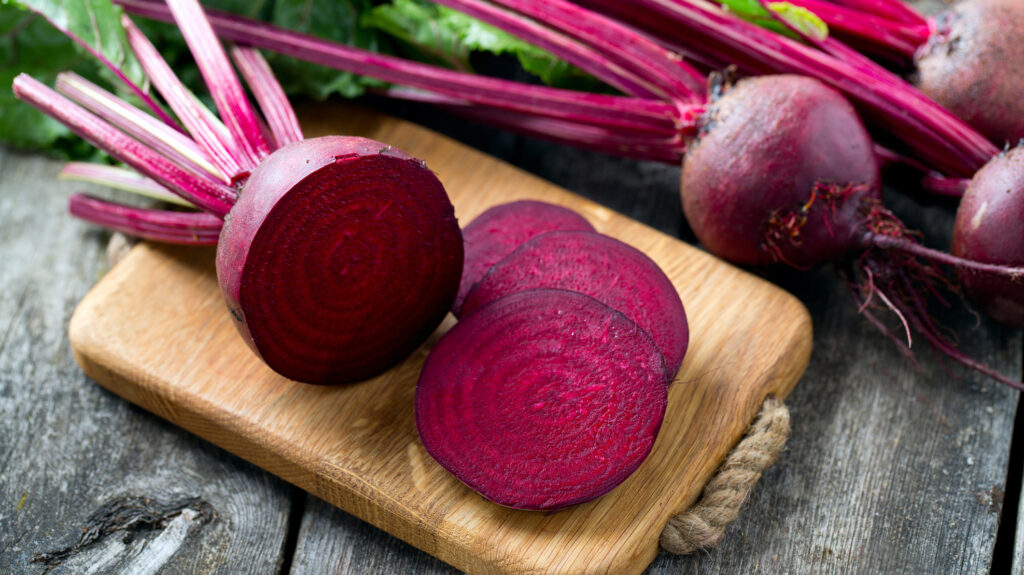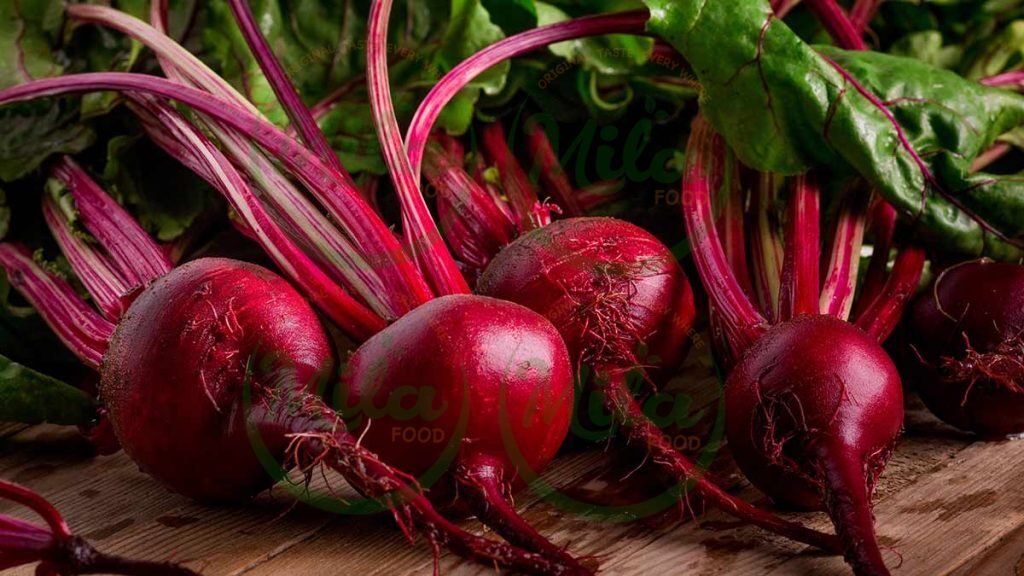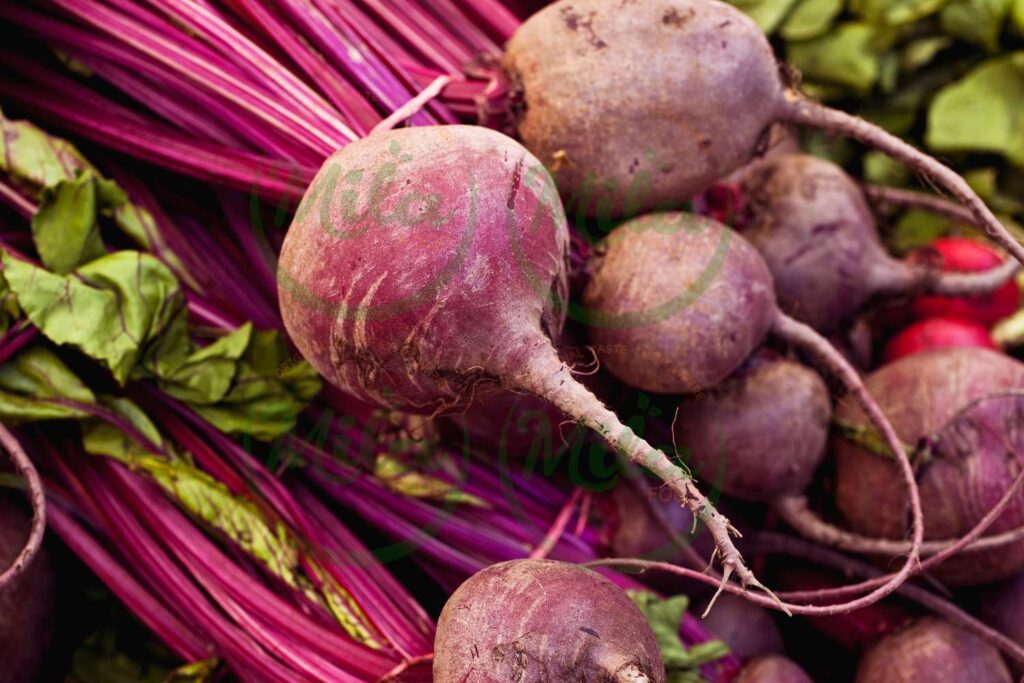


Egyptian beets, where earthy sweetness meets culinary creativity. With its rich flavor and vibrant hue, beets have been a staple in Egyptian cuisine for centuries, adding depth and color to a variety of dishes. Join us as we delve into the captivating story, culinary uses, and nutritional benefits of this esteemed root vegetable.
History and Origins: Egyptian beets, scientifically known as Beta vulgaris, have a history that traces back thousands of years. Originating in the Mediterranean region, beets have been cultivated and enjoyed in Egypt since ancient times. References to beets can be found in Egyptian hieroglyphics and culinary traditions, highlighting their significance in Egyptian cuisine. Today, Egyptian beets continue to be cultivated in the fertile soils of the Nile Delta, embodying a legacy of culinary excellence and cultural heritage.
Appearance and Flavor Profile: Characterized by their deep crimson color and sweet, earthy flavor, Egyptian beets exude a rustic charm that adds depth and complexity to dishes. Whether roasted, boiled, or pickled, beets offer a versatile canvas for culinary exploration. Their tender texture and natural sweetness make them a delightful addition to salads, soups, side dishes, and even desserts, providing a burst of color and flavor that captivates the palate.
Culinary Uses and Applications: Egyptian beets are prized for their culinary versatility, lending themselves to a wide range of dishes and cooking methods. They can be roasted to caramelized perfection, boiled and mashed into creamy purees, or grated raw for vibrant salads. Beet greens, the leafy tops of the plant, are also edible and can be sautéed, steamed, or added to soups for a nutritious boost. Additionally, beets can be pickled to create tangy, flavorful condiments or juices, showcasing their adaptability and culinary creativity.
Nutritional Benefits: Beyond their culinary charm, Egyptian beets offer a wealth of nutritional benefits. They are low in calories and fat, yet rich in essential vitamins, minerals, and antioxidants. Beets are an excellent source of folate, potassium, manganese, and vitamin C, which support cardiovascular health, immune function, and overall well-being. Additionally, beets contain unique compounds like betalains, which have been linked to anti-inflammatory and detoxification properties. Incorporating Egyptian beets into your diet can help promote optimal health and vitality while satisfying your culinary cravings.
Cultivation and Sustainability: Egyptian beets are cultivated in the fertile soils of the Nile Delta using sustainable agricultural practices. Traditional farming methods, including crop rotation and natural pest control, help maintain soil health and biodiversity while minimizing environmental impact. Whether grown on small family farms or larger agricultural estates, Egyptian beets reflect a commitment to sustainability and responsible stewardship of the land.

